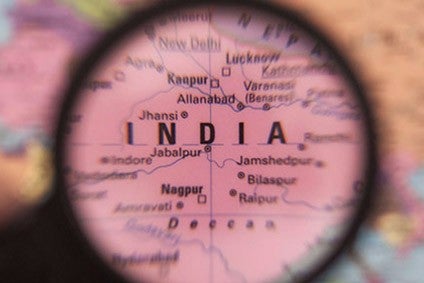
Adidas, Bestseller, Primark, and Next are among a group of 49 brands that have written to Indian Prime Minister Narendra Modi to reiterate their concerns over proposed changes to state labour laws and urge him to ensure that such propositions from state governments are not implemented.
Some Indian states have recently adopted legislative proposals to relax or suspend labour protections, arguing that such modifications would help Indian employers cope with the effects of the Covid-19 pandemic and boost investment in manufacturing industries.
The proposed amendments, however, would have “immediate and grave consequences” for workers in those states, according to the group, which collectively place more than US$700m worth of orders from India each year.
In a letter dated 21 July, the group – which also includes Esprit, C&A, Hugo Boss, River Island, and New Look – highlights the detrimental impact the law amendments would have on the safety, security and well-being of workers in the country, as well as the potential consequences they could have on the Indian business landscape.
It says the measures could damage India’s ranking on the World Bank’s Ease of Doing Business Index and harm the country’s long-term business prospects and labour economy.
The latest correspondence follows a letter sent to Prime Minister Modi on 9 June by a number of business organisations to which the 49 brands belong and civil society organisations with which they partner.

US Tariffs are shifting - will you react or anticipate?
Don’t let policy changes catch you off guard. Stay proactive with real-time data and expert analysis.
By GlobalDataAmong the changes to the labour laws and regulations are an increase in working hours to 72 hours a week in Gujarat, Uttar Pradesh, Madhya Pradesh and Himachal Pradesh; while the Uttar Pradesh government is said to have suspended 35 out of 38 labour laws governing trade unions, industrial dispute and contract workers.
Several Indian states have unilaterally made the substantive changes through the promulgation of state executive orders ,while others have proposed the suspension of labour laws for varying periods – although some have since withdrawn those proposals. While states are entitled to establish their own laws, they still need approval from the central government.
“We are cognisant that ensuring respect for human rights is a shared responsibility. Under the UN Guiding Principles on Business and Human Rights, governments are expected to protect human rights and businesses are expected to respect human rights. For businesses to fulfil their human rights responsibility when sourcing product, we need robust national laws that are appropriately monitored to ensure implementation. The amendment or suspension of key labour laws in India in response to the pandemic would leave us seriously concerned about respect for worker rights in our supply chains,” the letter says.
“We are concerned that the amendments to state labour laws countermand Convention 144 inasmuch as they were made without formal consultation with employers and workers. Other ILO conventions could also be violated by the proposed amendments, including Convention 001, related to hours of work; Convention 081, related to labour inspections; and Conventions 87 and 98, regarding freedom of association and collective bargaining.”
The group adds in light of this, it was heartening to see the Government’s affirmative response to the concerns raised about this by The International Labour Organization (ILO) but notes such concerns are becoming increasingly acute, however, as workers now return to their places of employment.
“In short, the proposed changes would seriously jeopardise the safety, security, and well-being of workers in India. In this vein, we respectfully request you to: (1) ensure that the restrictions on labour laws promoted by the state governments are not implemented; (2) encourage those governments to consult with affected stakeholders, including trade unions, before proposing additional changes to state labour laws; and (3) ensure that all eight fundamental ILO Conventions are implemented in India.”
Also among the letter signatories are Camaïeu, Gerry Weber International AG, Joules, KiK Textilien und Non-Food GmbH, Montane, Rewe Group, Superdry, The Very Group, and Volcom.



